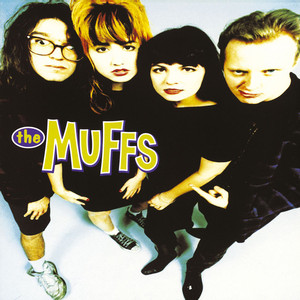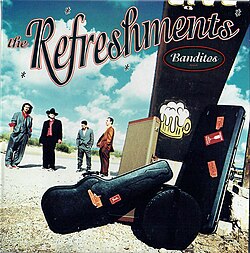 There’s something about Reba McEntire’s “Fancy” that makes it feel less like a country song and more like a three-act movie — one that plays out somewhere between the dusty edges of rural poverty and the glittering lights of Nashville redemption. Released in 1990 on her album Rumor Has It, Reba’s version of “Fancy” isn’t just a cover of Bobbie Gentry’s 1969 original — it’s a total reinvention, an act of musical theater that transformed an already dark, provocative story into a defiant feminist anthem.
There’s something about Reba McEntire’s “Fancy” that makes it feel less like a country song and more like a three-act movie — one that plays out somewhere between the dusty edges of rural poverty and the glittering lights of Nashville redemption. Released in 1990 on her album Rumor Has It, Reba’s version of “Fancy” isn’t just a cover of Bobbie Gentry’s 1969 original — it’s a total reinvention, an act of musical theater that transformed an already dark, provocative story into a defiant feminist anthem.
“Fancy” isn’t just a song you sing along to; it’s one you live through. It’s cinematic, ferocious, and drenched in that signature McEntire flair — a storytelling style that’s half Tennessee tragedy, half Broadway bravado. And at its core, it’s one of the greatest rags-to-riches narratives country music has ever produced, wrapped up in sequins, sass, and a touch of sin.
The Story: Poverty, Pride, and the Price of Survival
At its heart, “Fancy” is a character study — and what a character she is. Fancy Rae Baker — poor, desperate, and stuck in a shack on the wrong side of the tracks — is thrust into womanhood by a mother’s desperate decision. In the song’s unforgettable opening lines, we’re right there in that tiny room:
“I remember it all very well lookin’ back / It was the summer I turned eighteen…”
That’s how Reba pulls us in — like a memory being poured over a drink. The mother, dying and out of options, dresses her daughter up in a red satin dress and sends her into the world to survive however she can. It’s a gut-punch of a premise — equal parts heartbreaking and empowering.
Reba doesn’t shy away from the song’s moral ambiguity. Instead, she leans into it. Fancy’s rise from dirt-floor poverty to high-society power player isn’t framed as shameful — it’s triumphant. This isn’t the story of a fallen woman; it’s the story of a woman who refused to stay fallen.
When she belts out, “Here’s your one chance, Fancy, don’t let me down!” you can hear the desperation, the love, and the twisted hope in every syllable. It’s a plea, a prayer, and a prophecy all at once.
Reba’s Reinvention: From Bobbie Gentry to Queen of Country Drama
Bobbie Gentry’s 1969 version of “Fancy” was already brilliant — smoky, sultry, and cinematic in its own right. But where Gentry’s take felt like a whispered confession, Reba’s is a full-blown revival meeting. She doesn’t just sing “Fancy” — she performs it.
By 1990, Reba was already country royalty. She had the hair, the hits, and the ability to turn a three-minute song into a theatrical experience. Her version of “Fancy” took Gentry’s quiet Southern noir and exploded it into Technicolor. The production was glossier, the tempo sharper, and the emotion bigger.
Reba wasn’t just covering a song — she was claiming it.
Her version builds like a storm. The verses tell the story with restraint, but by the time the chorus hits, it’s pure fire. The strings swell, the drums thunder, and Reba’s voice goes from storytelling to soul-bearing. It’s a masterclass in dynamics — she starts small and ends with enough power to raise the roof of the Grand Ole Opry.
Even the music video became legendary — a mini-movie of its own. Reba, in that unforgettable red dress, returns to the old shack where she grew up, now a rich woman revisiting her past. It’s Gone with the Wind meets Steel Magnolias with a country twang.
1990: The Year Country Went Cinematic
The release of “Fancy” in 1990 was no accident. Country music was shifting. The ’80s had brought in the Urban Cowboy era — polished, pop-influenced, and full of crossover appeal. But the ’90s ushered in something different: big, emotional storytelling.
Reba was at the forefront of that movement. She was one of the first artists to make country videos that felt like short films — complete with costumes, plots, and drama to spare. “Fancy” was her magnum opus. It wasn’t just a song on the radio; it was an event.
At a time when female country singers often got boxed into love songs or heartbreak ballads, Reba was out here performing a full-blown Southern morality play. She was telling stories about survival, dignity, and the complicated choices women have to make. “Fancy” wasn’t about romance; it was about agency.
The Performance: Red Satin and Pure Steel
Let’s talk about Reba’s delivery.
That voice — sharp as a blade and warm as whiskey — carries every ounce of grit and glamour the song demands. You can practically see her eyes flashing as she delivers lines like, “I might’ve been born just plain white trash, but Fancy was my name!”
It’s the kind of moment that stops you cold. She sings it not as shame, but as defiance — an open challenge to anyone who would judge her character’s path. That’s the brilliance of Reba’s interpretation: she transforms what could’ve been a cautionary tale into a victory lap.
Every time she performs it live, she embodies the song. The red dress is never just a costume; it’s a crown. Reba turns tragedy into triumph, and Fancy becomes a symbol — of resilience, of survival, of turning pain into power.
It’s impossible not to cheer for her.
Fancy as a Feminist Icon (With Rhinestones)
“Fancy” may not wear the word feminist on its sleeve, but make no mistake — it’s one of the most empowering songs ever to hit country radio.
Think about it: a woman takes control of her destiny in the only way society allows her. She uses the system that oppressed her — poverty, sexism, classism — and flips it. She becomes her own salvation.
By the time the song ends, Fancy has outsmarted every man who underestimated her. She’s rich, respected, and unapologetically herself. There’s no moral lecture, no tidy resolution — just victory, hard-earned and perfectly manicured.
Reba understood that message intuitively. Her version of “Fancy” is unapologetic. She doesn’t ask for forgiveness — she demands respect. And for millions of listeners, especially women, that message landed like a lightning bolt.
Fancy wasn’t a victim. She was a survivor. And she owned her story.
The Production: Drama, Strings, and Southern Smoke
The arrangement of Reba’s “Fancy” is lush and cinematic. Where Gentry’s version relied on folk instrumentation and swampy rhythm, Reba’s leans into orchestration — sweeping strings, echoing drums, and that crisp Nashville polish that defined the era.
But it never feels overproduced. Every element serves the story. The strings lift the emotional moments; the percussion drives the tension. The pacing is deliberate — slow enough to build anticipation, fast enough to keep you hanging on every word.
And through it all, Reba’s voice sits at the center like a spotlight. She doesn’t need auto-tune, tricks, or backup choirs — she is the production.
Cultural Resonance: From Jukeboxes to Drag Shows
“Fancy” became one of those rare songs that transcends genre. Country fans adored it, but it also found a second life in LGBTQ+ spaces, drag performances, and pop culture references. There’s something universal about its message — the transformation, the defiance, the refusal to apologize.
It’s become an anthem for anyone who’s ever clawed their way out of a bad situation with style and strength. Reba herself leaned into that larger-than-life energy — the red dress, the hair, the charisma. “Fancy” made her not just a country star, but a cultural icon.
Even decades later, when she closes a concert with “Fancy,” it still feels electric. The crowd doesn’t just sing along — they cheer for Fancy. It’s catharsis. It’s triumph. It’s every person who was told they wouldn’t make it, standing up and saying, “Watch me.”
Reba’s Legacy Through ‘Fancy’
Reba McEntire has had a career filled with hits, heartbreakers, and honky-tonk heroes. But “Fancy” stands above the rest because it distills everything that makes her great: storytelling, vocal firepower, theatrical flair, and deep empathy.
The song has followed her through every stage of her career. It’s become shorthand for her brand of resilience — equal parts glitz and grit.
When she performed it at awards shows, she didn’t just sing it — she inhabited it. The red dress became her superhero costume, the symbol of her artistry. And over time, it’s come to define her just as much as “Jolene” defines Dolly or “Coal Miner’s Daughter” defines Loretta.
The Song’s Secret Ingredient: Heart
What makes “Fancy” timeless isn’t just the story, or the performance, or even the melody — it’s the heart. There’s compassion in every corner of the song. The mother’s desperation isn’t villainized. Fancy’s choices aren’t condemned. Everyone’s doing what they can to survive.
It’s messy, human, and heartbreakingly relatable. That’s why the song endures — it’s not about sex or scandal; it’s about survival and self-respect.
And that’s the genius of Reba’s interpretation. She doesn’t let the listener pity Fancy — she makes us root for her.
Final Thoughts: One Chance Was All She Needed
More than thirty years after its release, “Fancy” remains one of the greatest storytelling songs in country music history — and Reba McEntire’s definitive masterpiece. It’s theatrical, emotional, and totally unashamed of its drama.
It’s also proof that country music can do more than twang and heartbreak — it can tell epics. In three and a half minutes, Reba gives us poverty, tragedy, reinvention, and redemption — and she makes it look fabulous.
When she wails that final line, “Here’s your one chance, Fancy, don’t let me down,” you realize she didn’t. Not even a little.
Reba took a song about desperation and turned it into a declaration — a call to rise, to survive, and to sparkle while doing it.
Because if life only gives you one chance, you might as well take it in a red satin dress.


